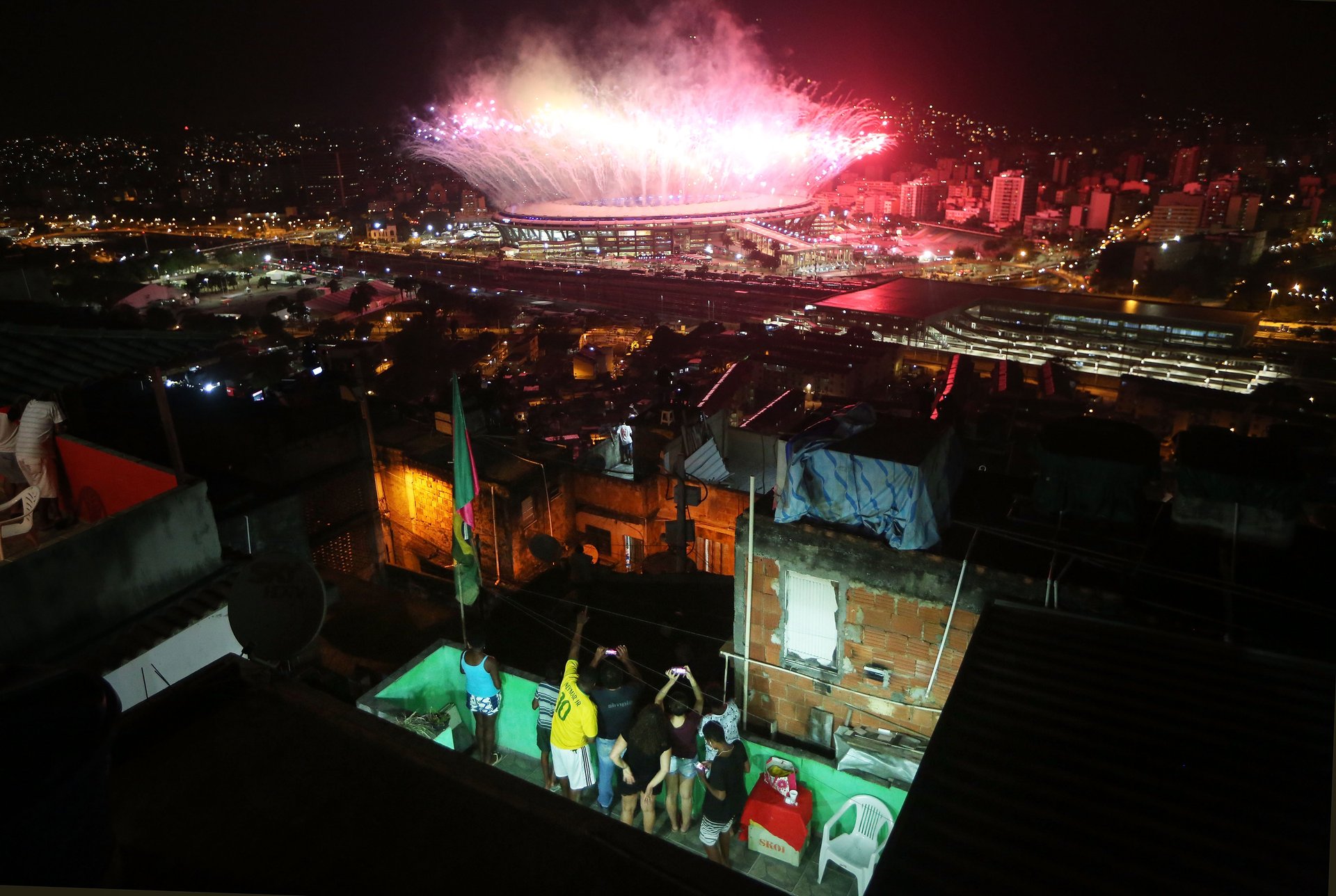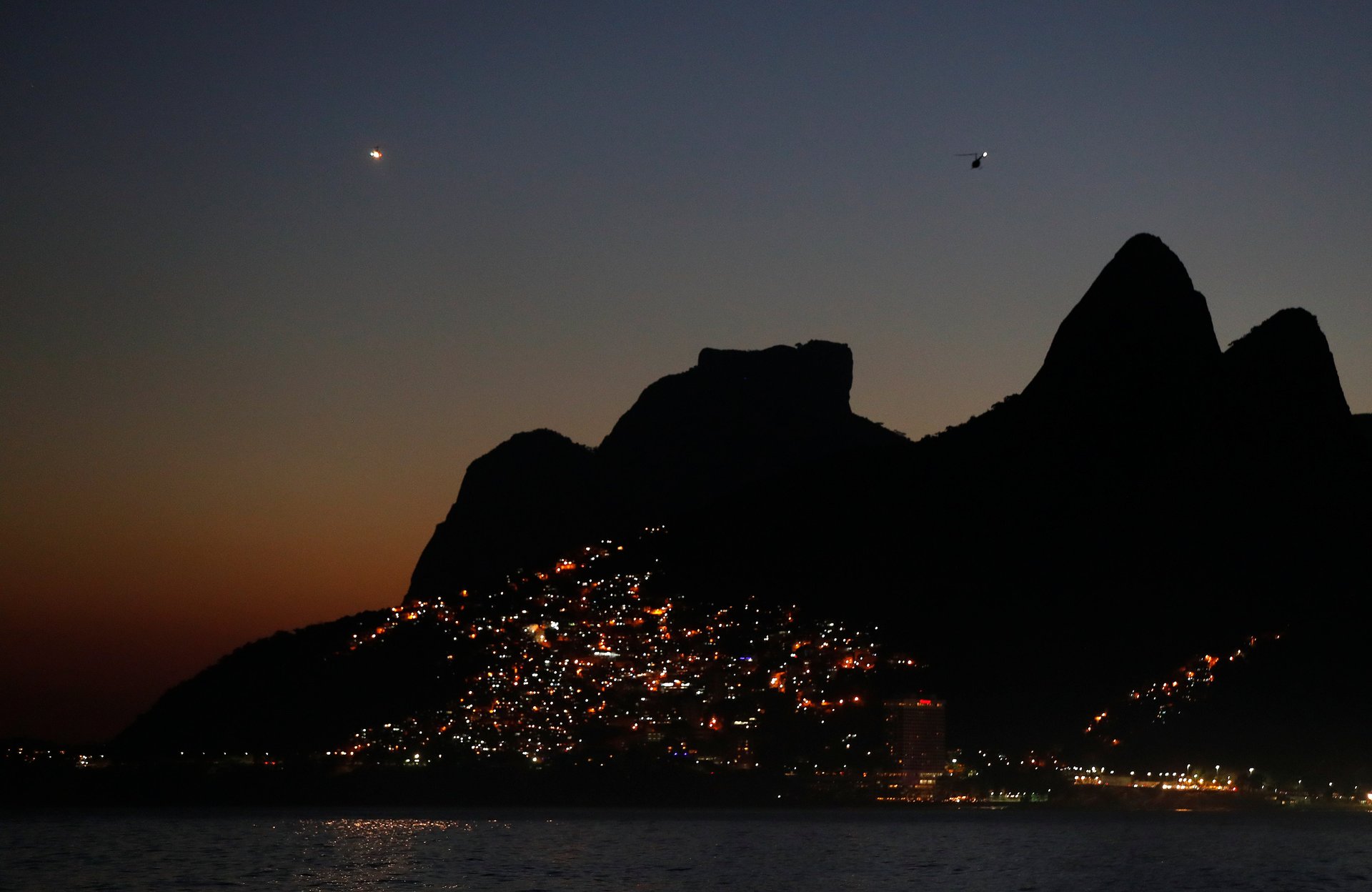This stunning image sums up the experience of the Rio 2016 Olympics for those living in favelas
Far off over Maracanã stadium, fireworks burst brilliantly over the lavish opening ceremony of the 2016 Olympic games. In the foreground, a group of people watched on a rooftop, the ramshackle construction of homes in the favela called Mangueira evident around them.


Far off over Maracanã stadium, fireworks burst brilliantly over the lavish opening ceremony of the 2016 Olympic games. In the foreground, a group of people watched on a rooftop, the ramshackle construction of homes in the favela called Mangueira evident around them.
The image, shot by Getty photographer Mario Tama, shows Rio de Janeiro, which hosts the games this year, beyond the highly produced, televised event that billions watched. It illustrates the gulf between Rio’s impoverished residents, who live in the substandard housing of the favelas, and the luxury of the games, which critics believe have prioritized the short-lived event above the well-being of ordinary Brazilians.
Roughly 22% of the city’s more than 6 million residents live in favelas, giving Rio one of the highest rates of income disparity in the world. Most of the residents are working-class Brazilians, despite the image of favelas being rife with crime.
The favelas are built haphazardly on the hills and mountains that rise up around the city. They’re often near or adjacent to wealthier neighborhoods, particularly in the city’s well-known tourist areas, making the wealth inequality a constance presence. Photos taken from the upscale beaches of Leblon or Ipanema show the favelas of Vidigal at the base of the two mountains in the distance, called Dois Irmãos.

“In Rio, the striking gaps between rich and poor are often clearly visible, with ‘favela’ communities located alongside wealthier neighborhoods,” Tama wrote in a blog post about the image, taken from the home of a resident of Mangueira, a favela some distance from the city’s main beaches. “We felt it was important to register life outside of the stadium at the moment the fireworks were lit, given the economic and political situation in the country.”
Though the Rio opening ceremony wasn’t as costly as some in previous Olympics, the games are still a huge expense for the city. Brazil is reeling from a major recession, Rio faces a financial crisis and a corruption scandal has reached its way to President Dilma Rousseff, creating an opportunity for what some label a “soft coup” that has wrested power from Rousseff. The situation has led to mass protests of the games.
But the games have gone on. The closest many favela residents will get to them is watching on TV, or from a rooftop.